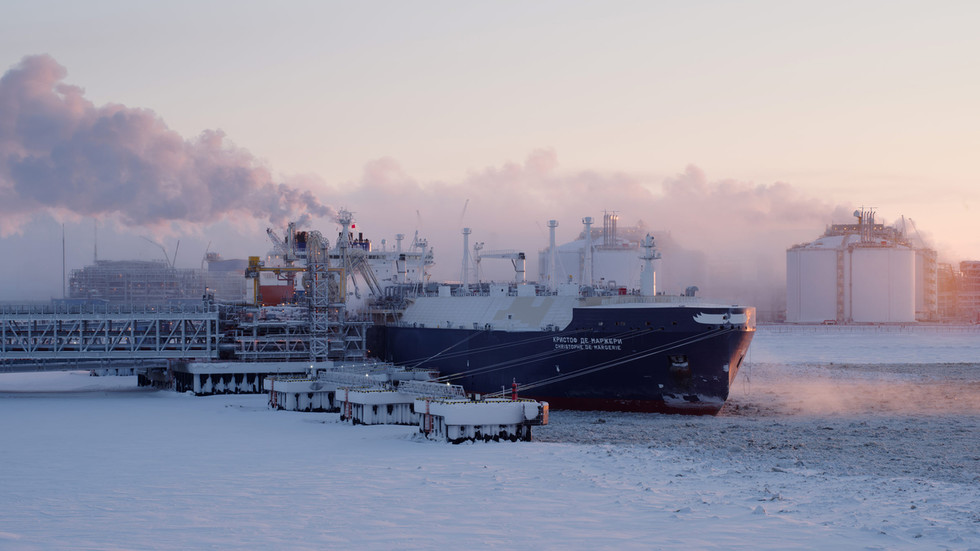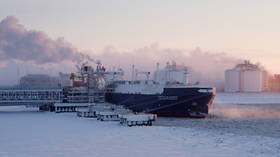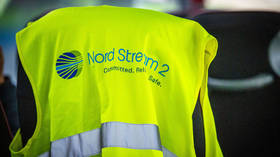
The bloc’s regulator has urged caution in the reduction of liquified natural gas imports from Russia as the transit deal with Ukraine nears expiration

LNG carrier Christophe De Margerie docked at the Russian Arctic port of Sabetta, home to the liquified natural gas plant Yamal LNG. © novatek.ru
The EU’s energy regulator has warned against drastic reductions of imports of liquified natural gas (LNG) from Russia, despite the bloc’s ambition to completely end its reliance on fossil fuels from the country over the Ukraine conflict.
In the 2024 Market Monitoring Report released on Friday, the Agency for the Cooperation of Energy Regulators (ACER) said that “reductions in Russian LNG imports should be approached with caution,” particularly given the impending end of the supply of pipeline gas from the country later this year.
The report was referring to the expiration of the five-year transit contract for gas pipeline supply from Russia to Europe via Ukraine in December. Ukraine said last month that it had no plans to prolong the deal. If the flow stops, the EU could potentially lose 13.6 billion cubic meters (bcm) of natural gas, or about 4% of last year’s total consumption.
The other remaining pipeline route from Russia to Europe goes under the Black Sea to Turkey and Bulgaria.
The EU is aiming to completely end its reliance on Russian fossil fuels by 2027. To that effect, the reduction of the LNG imports from the country “should be considered in gradual steps starting with spot imports,” reads the report. “Substantial volumes” were contracted under long-term agreements before the start of Russia’s military operation in Ukraine and ensuing Western sanctions, the document adds.

ACER expressed concern over the new powers granted by the EU Parliament to individual countries earlier this month. EU countries now have the legal option to restrict the flow of Russian LNG at the national level. If taken, such moves could break the long-term supply contracts and result in hefty penalties for European companies.
Russia is the second-largest producer of LNG in the Atlantic basin after the US, ACER notes. The sanctioned country was also the bloc’s second-biggest LNG supplier after the US in 2023. According to the data provider Kpler, Russia accounted for 16% of total EU imports last year.
Several countries including Sweden, Finland and the Baltic states are pushing for the EU to impose an immediate total ban on Russian LNG. According to the Financial Times’ sources, officials are set to lobby the European Commission over the plan next week.
Some EU members still rely heavily on Russian LNG, which continues to flow into the continent, mostly through ports in Spain, Belgium and France. A complete ban on the resource would require unanimity among the member states.




